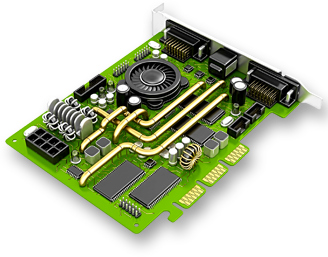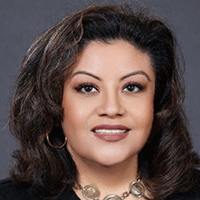Microelectromechanical Engineering Division
MicroElectroMechanical Systems (MEMS) are defined as a miniature device or an array of devices combining electrical, mechanical, optical, chemical and/or biological components fabricated via integrated circuit or other similar manufacturing techniques.

About
MicroElectroMechanical Systems (MEMS) are defined as a miniature device or an array of devices combining electrical, mechanical, optical, chemical and/or biological components fabricated via integrated circuit or other similar manufacturing techniques. It is by it’s very nature a multi-disciplinary field
Research, insight, and then applications of MEMS will shape the basis for the creation of technologies that will impact areas as diverse as computing, information technology, biomedical technology, the environment, along with energy, transportation, robotics,. manufacturing, deep space studies, and national security.
Since its start in the late 1960s, the MEMS field has been growing rapidly, especially since 1989. Currently, patents in MEMS are being issued at a rate of over one per day!
The MEMS Division will work towards the goals of: providing a focal point for the Mechanical Engineers entering and practicing in the MEMS field; Facilitating interaction and discussion among the MEMS community and generate opportunities for collaboration in order to spawn and maintain creativity in the field; Identifying the needs and problems of the MEMS community and bring together appropriate people to address them; Provide a platform to generate standards and guidelines for MEMS processes and technologies; Educate and inform engineers and scientists in various fields of the ongoing developments in the MEMS field; Help train new, multi-disciplinary MEMS researchers to enhance the growth of the field.
Leadership
Greg Hader, US Army DEVCOM AC
Chair
July 2024 – June 2025
Uttam Chakravarty, University of New Orleans
Vice Chair
July 2024 – June 2025
Namwon Kim, Texas State University
Past Chair
July 2024 – June 2025
In-Hyouk Song, Texas State University
Treasurer
July 2024 – June 2025
Jeong Tae Ok, Shawnee State University
Secretary
July 2024 – June 2025
Shaurya Prakash, Ohio State University
Member-at-Large
July 2024 – June 2025
Laura Herrera, ASME
Sr. TEC Operations Manager | May 2021 – OPEN
Leadership History
| Year | Name | Affiliation |
|---|---|---|
| 2023 - 2024 | Namwon Kim | Texas State University |
| 2022 - 2023 | Nazmul Islam | University of Texas Rio Grande Valley |
| 2021 - 2022 | Byoung-Hee You | Texas State University |
| 2020 - 2021 | Ioana Voiculescu | City University of New York |
| 2019 - 2020 | Jong Hyun Choi | Purdue University |
| 2018 - 2019 | Rasim Guldiken | University of South Florida |
| 2017 - 2018 | Nathan Crane | Brigham Young University |
| 2016 - 2017 | Ahsan Mian | Wright State University |
| 2015 - 2016 | Michael Murphy | Louisianna State University |
| 2014 - 2015 | Po-Hao (Adam) Huang | University of Arkansas |
| 2013 - 2014 | Eui-Hyek Yang | Stevens Institute of Technology |
| 2012 - 2013 | Eui-Hyek Yang | Stevens Institute of Technology |
| 2011 - 2012 | Aman Haque | The Pennsylvania State University |
| 2010 - 2011 | unknown | |
| 2009 - 2010 | Cetin Cetinkaya | Clarkson University |
| 2008 - 2009 | Cetin Cetinkaya | Clarkson University |
| 2007 - 2008 | unkown | |
| 2006 - 2007 | Kimberly Turner | University of California, Santa Barbara |
| 2005 - 2006 | James Allen | Sandia National Laboratories |
| 2004 - 2005 | Liwei Lin | University of California, Berkeley |
| 2003 - 2004 | Albert Pisano | University of California, San Diego |
| 1998 - 2003 | Albert Pisano | University of California, San Diego |
Links
Links to helpful online resources related to the division are below. If you have suggestions for other resources, please contact the division chair or ASME staff.
Landmarks, sites and collections of historic importance to mechanical engineering are designated by ASME through its History and Heritage Landmarks Program.
ASME Division
Universities
National Labs
MEMS Information Sites
Upcoming Events
November 16 - 20, 2025
Renasant Convention Center
Memphis, Tennessee USA
Important Dates
March 4, 2025 Abstract Submission
May 13, 2025 Submission of Full Length Paper
August 19, 2025 Final Paper Submission
Share your research. Advance your career.
Track 13: Micro - and Nano-Systems Engineering Packaging
Topics
13-1 General Topics of MEMS/NEMS
13-2 Design and Fabrication, Analysis, Processes, and Technology for Micro and Nano Devices and Systems
13-3 Computational Studies on MEMS and Nanostructures
13-4 Applications of Micro and Nano Systems in Medicine and Biology
13-5 Micro and Nano Devices
13-6 Applied Mechanics and Materials in Micro- and Nano-Systems
13-7 Packaging Technology in Heterogeneous Integration Applications
13-8 Energy Harvesting and Storage
13-9 Advanced Manufacturing of Microsystems, Microstructures, and Miniaturized Actuators
13-10 Microfluidics 2023
13-11 Inertial Navigation: MEMS/NEMS to Bio-Inspired
13-12 MEMS based Electrochemical Sensors in Biomedical Applications
13-13 Simulations of Material Modeling and Behavior Analysis for MEMS Applications
Student Competitions
$350 towards the conference registration fee.
Best Papers: 3 Awards
Innovative Paper: 3 Awards
Global Impact Paper: 3 Awards
Track 13 Organizers
TIn-Hyouk Song, Texas State University;
Jeong Tae Ok, Shawnee State University
Shaurya Prakash, Ohio State University
Webinars
Organic Haptics: Structured Polymers for Two-Way Communication with Biological Systems
February 5, 2025
2:00 - 3:00 PM Eastern Time
Darren J. Lipomi
Professor
University of Rochester
Mechanical deformability underpins many of the advantages of semiconducting and stimuli-responsive polymers in applications from flexible solar cells to wearable devices for healthcare and virtual touch. In this talk, I will present my group’s work at the intersection between the science of soft materials and the science of touch. This field, which we have named “organic haptics,” combines active polymers, contact mechanics, and psychophysics. We are beginning to understand the ways in which stick slip friction, adhesion, and capillary forces between planar surfaces and human skin affect the ways materials produce tactile objects in consciousness as mediated by the sense of touch. This work, which combines human subject experiments, laboratory mockups of human skin, and analytical models accounting for friction, has led to several important observations. In particular, we have elucidated the mechanism by which humans can differentiate hydrophilic from hydrophobic surfaces when bulk parameters such as hardness, roughness, and thermal conductivity are held constant, and have also taken steps to understand the perception of softness of surfaces bearing microscopic relief structures. We have taken the insights from these psychophysical experiments to design new electroactive and ionically conductive materials to produce haptic biomaterials whose goal is to produce realistic sensations for applications in tactile therapy, instrumented prostheses, education and training, and virtual and augmented reality.
Register Today!
Darren J. Lipomi is a professor and chair of the Department of Chemical Engineering at the University of Rochester. Prior to his current appointment, he was a professor of nanoengineering, chemical engineering, and materials science at UC San Diego, where he also served as the Associate Dean for Students and the Faculty Director of the IDEA Engineering Student Center at the Jacobs School of Engineering. Lipomi earned his bachelor’s degree in chemistry with a minor in physics as a Beckman Scholar at Boston University in 2005, and his PhD in chemistry at Harvard University in 2010, with Prof. George M. Whitesides. From 2010 – 2012, he was an Intelligence Community Postdoctoral Fellow in the laboratory of Prof. Zhenan Bao at Stanford University, and arrived at UCSD in 2012. His research interests include the chemistry of organic materials, especially the mechanical properties of semiconducting polymers for flexible solar cells, biomechanical sensors, and phenomena that occur at the intersection of materials chemistry with human perception and cognition. He is the recipient of the AFOSR Young Investigator award, the NIH Director’s New Innovator Award, the Presidential Early Career Award for Scientists and Engineers (PECASE), and the NSF BRITE-Pivot award. He hosts a podcast, “Molecular Podcasting with Darren Lipomi” and associated YouTube channel (Darren_Lipomi) that together have >17,000 subscribers. These venues serve as a resource to students, postdocs, and other early-career researchers. His research website is lipomigroup.org.
On-Demand Complimentary
Introduction to Inertial Sensor and System Testing
Marius Gheorghe, PhD
Chief Engineer, Systems Solutions
Ideal Aerosmith, Inc.
This webinar presentation sponsored by the ASME MEMS Division will focus on MEMS inertial sensors and systems, followed by an in-depth review of various testing aspects associated with them.
This coverage will include both theoretical and practical technical details, ranging from mathematical error models to observability, and to the design of test plans. Finally, the presentation will conclude with real-life failures that will underscore the critical role that rigorous testing plays in ensuring the reliability and functionality of MEMS inertial sensors and systems in real-world applications.
Dr. Marius Gheorghe is Chief Engineer – Systems Solutions with Ideal Aerosmith Inc., where he develops test solutions for inertial and non-inertial applications and is mentoring new generations of engineers. His professional career centered on designing test equipment for applications ranging from semiconductors to defense, aerospace, and space programs. He has authored papers for reputable peer-reviewed journals, presented tutorials and papers at IEEE conferences, and is an active voting member in the IEEE Gyro and Accelerometer Panel (GAP) standards committee. He is a member of the Steering Committee for the International Conference on Sensors and Electronic Instrumentation Advances (SEIA), and of the Technical Program Committee of the IEEE International Symposium on Inertial Sensors and Systems (INERTIAL).
.png?width=200&height=200&ext=.png)
